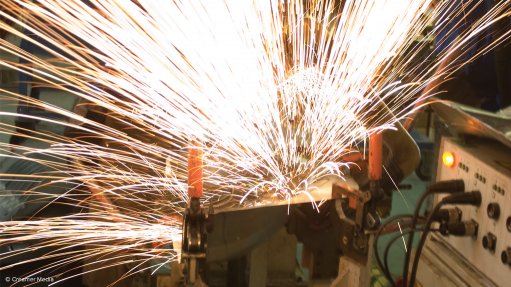
Photo by: Creamer Media
While the containment of the coronavirus (Covid-19) remains the biggest priority of governments and health organisations, its effects on businesses are starting to take their toll, a South African based management consulting firm says.
Principal at Kearney, Sujeet Morar, says as cities start to shut down to curb the spread of Covid-19, local businesses have felt the direct impact of this on income. The true impact of the pandemic on the economy still needs to be determined.
He said a number of Kearney partners in already hard-hit areas, such as Asia, Middle East and Europe, have been documenting their experiences and giving “safety guidelines” for local manufacturing to help plan forward.
“There is a small window of opportunity for the local industry to act and to safeguard themselves, due to the fact that the virus has only recently hit us compared to the longer period it has been present in other territories,” Morar said.
In a report published in February, Business Impact of the Coronavirus, a dun & bradstreet, 938 of the Fortune 1,000 companies have a tier 1 or tier 2 supplier that has been affected by the virus.
Morar said while the final economic toll of the outbreak is unknown, it is already clear that the crisis will be far more disruptive than anything the world has experienced in the past, with Europe and America’s manufacturing now being slammed.
“Now is not the time for manufacturers to panic. The outbreak provides an opportunity for business owners to improve their business strategies and inoculate their companies against Covid-19,” he said.
He said there are three global trends that exacerbate the damage the outbreak is having on the supply chains. Morar says:
1) that the climate crisis and widespread environmental degradation profoundly impact global supply chains through increasing risks to available resources;
2) trade tensions increase uncertainty by disrupting supply chains and creating opportunities for local suppliers; and
3) emerging technologies are reducing the importance of economies of scale, facilitating the location of production closer to consumers, and enhancing transparency between producers and consumers.
Morar says companies are going to have to look at diversifying their supply chains.
“Shorter supply chains, geographic clusters of activity, and technologies, such as artificial intelligence, can bring more production to where the demand is.
"Everyone must develop a ‘sense and pivot’ capability,” he said.
“This allows them to detect potential blind spots in the face of varying external circumstances, such as the outbreak, and to build supply chains that can react swiftly to remove bottlenecks.”
Morar said no one is in a position to predict exactly if and how the epidemic will continue to spread.
"Just looking at what has happened over the last couple of days and weeks should indicate how fast this can disrupt industries. It is critical that businesses start taking proactive steps to mitigate any negative fallout.”